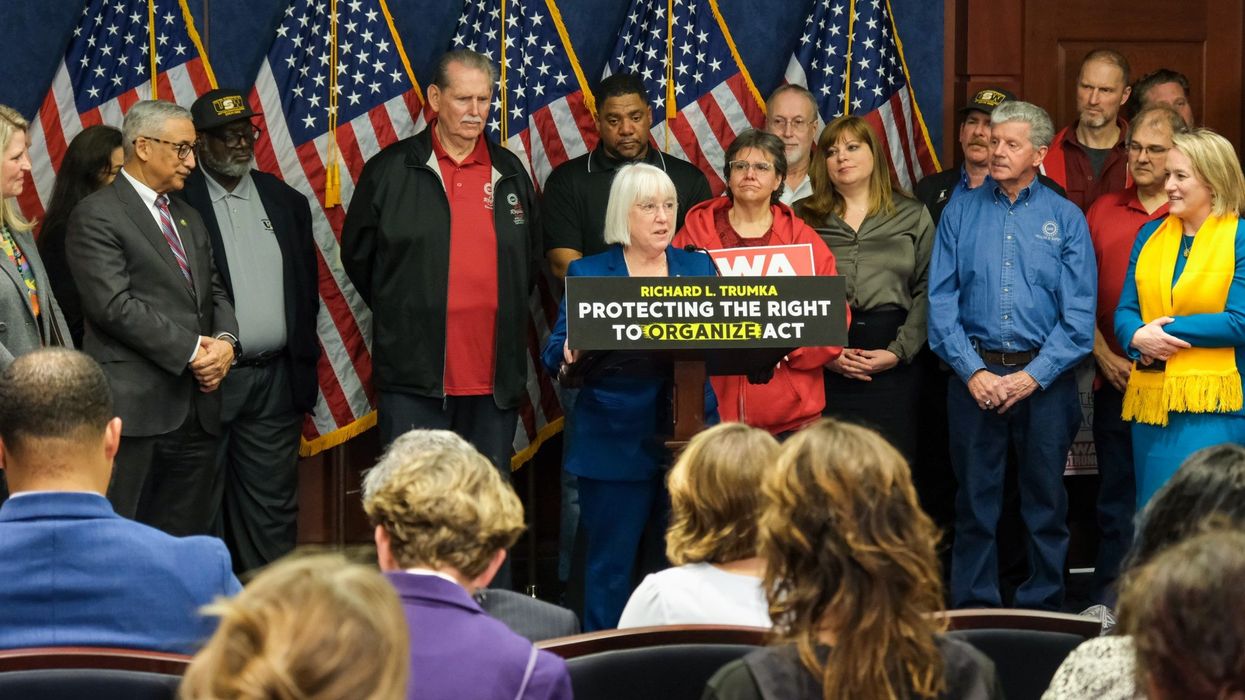SPONSORS AND SUPPORTERS of the proposed Richard L. Trumka Protecting the Right to Organize Act of 2023 say it is needed to protect the rights of workers to organize under labor unions. However, the American Hotel & Lodging Association and others claim the PRO Act puts an undue burden on small businesses, including hotels.
The PRO Act would authorize penalties against employers that interfere with employees’ efforts to organize, according to Democratic Rep. Robert “Bobby” Scott of Virginia, one of the co-sponsors of the bill. Also, the bill would facilitate collective bargaining agreements, close loopholes that allow employers to misclassify employees as supervisors and independent contractors.
Other aspects of the PRO Act include protection for employees that experience retaliation for trying to organize a union, ensures that workers can collect “fair share” fees and authorizes a private right of action for violation of workers’ rights. It also prevents employers from interfering in union elections or holding captive audience meetings.
“Regrettably, for too long, workers have suffered from anti-union attacks and toothless labor laws that undermined their right to form a union,” Scott said. “As a historic number of Americans put their support behind labor unions, Congress has an urgent responsibility to ensure that workers can join a union and negotiate for higher pay, better benefits, and safer workplaces.”
Scott and Democrat Sen. Patty Murray of Washington, another bill sponsor, both said the PRO Act is needed to ensure that workers are not left out of the national economy’s recovery from the pandemic.
“We have made really important progress recovering from the pandemic and building a better, fairer economy over the last few years—but the fact is too many workers are still getting left behind while the biggest corporations make a killing,” Murray said. “That’s why I’m glad to join my colleagues today in reintroducing the PRO Act to protect every worker’s right to organize and fight for better pay, quality health care, a safer workplace, and a secure retirement.”
AHLA was critical of the bill.
“The lodging industry has long provided a pathway for fulfilling careers and the means for employees and entrepreneurs to achieve the American Dream. Unfortunately, the PRO Act, reintroduced in Congress this week, would undermine workplace flexibility and upward mobility for workers and create extensive and costly regulatory burdens for small business owners,” the organization said in a statement. “While every worker has the right to freely join a union, the PRO Act would encroach upon worker privacy, subvert secret ballot elections and manufacture joint employer liability in an effort to impose a union on businesses and workers. We strongly oppose this damaging bill, which threatens to destroy jobs and assail businesses just as our economy is beginning to return to pre-pandemic normalcy.”
The National Federation of Independent Business also issued a statement against the PRO Act.
“This is an expansive piece of legislation that would dramatically upend long-standing employment laws in favor of labor unions at the expense of small businesses and their employees,” the NFIB statement said.
NFIB listed specific parts of the bill to which it was opposed:
- Abolish state “Right to Work” laws that protect non-union employees from being required to contribute union fees if the employee is not a member of the labor organization.
- Require employers to turn over the private contact information of their employees to union organizers before union elections.
- Remove the right of workers to hold a secret ballot regarding if they should or should not join a union.
- Include a stricter version of California’s “ABC” independent contractor law that forced that state to immediately carve out dozens of exceptions since the PRO Act has no such exceptions.
- Allow labor unions to boycott small businesses with whom they have no affiliation.
In March, AHLA released its Front Desk Feedback survey that found that hotels are offering more incentives to attract new employees as a result of the labor shortage. They include higher wages, more benefits and greater scheduling flexibility.






